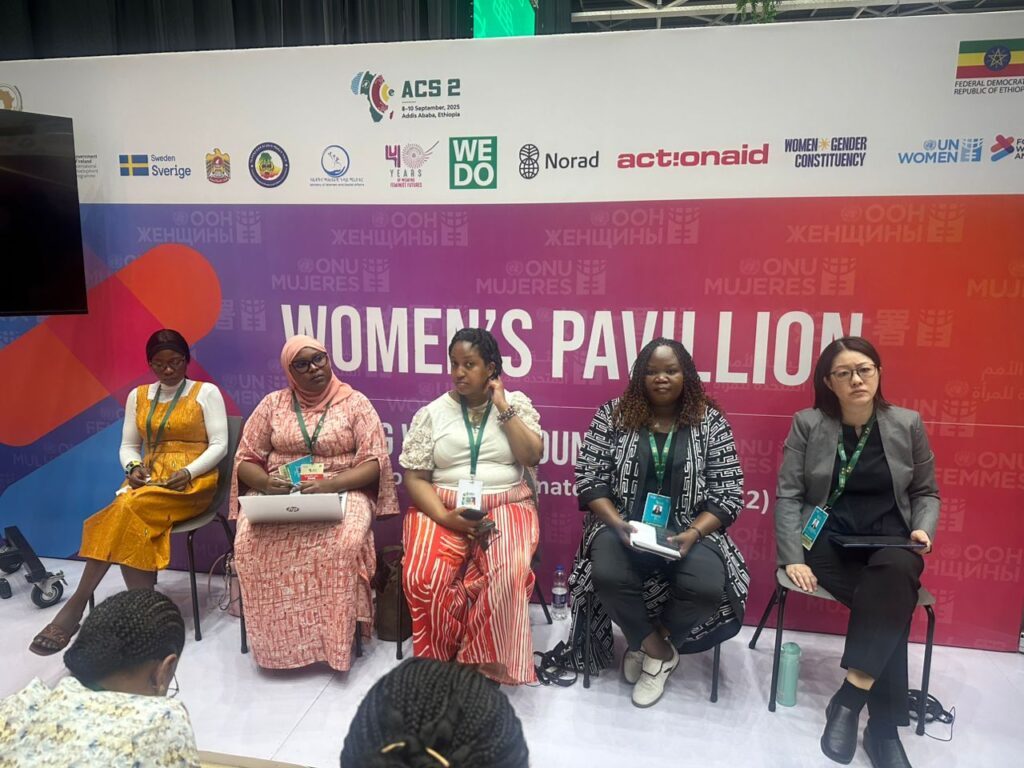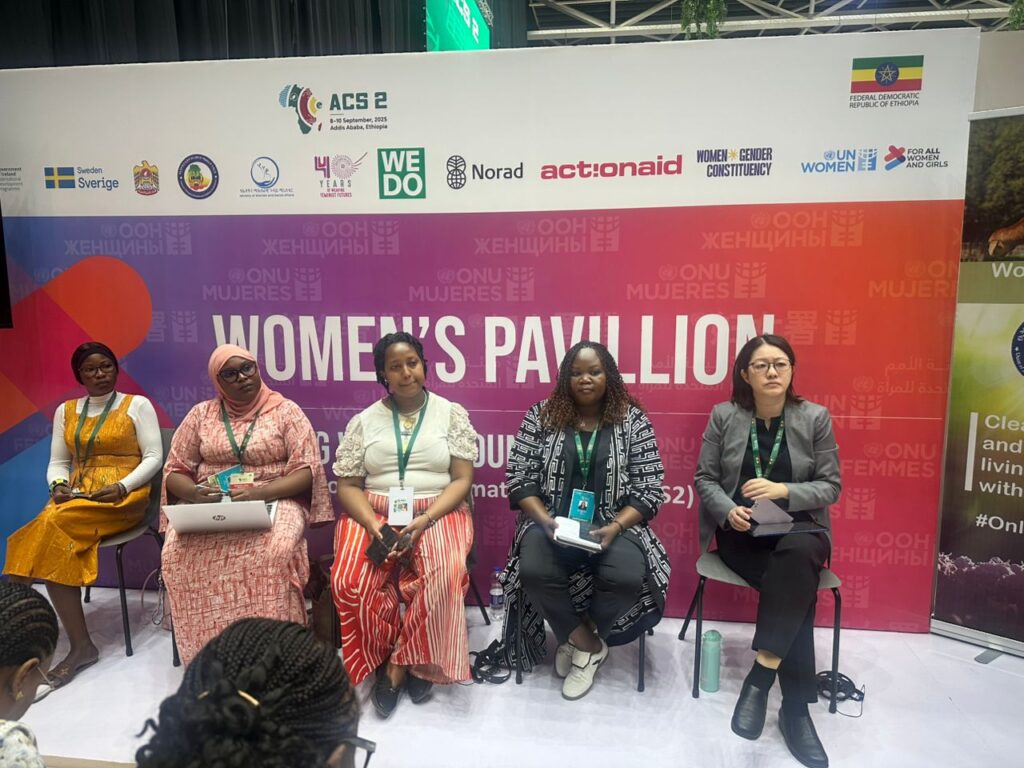By Jenifer Gilla
Addis Ababa, Ethiopia. Experts and activists are calling for stronger integration of gender and migration issues into Africa’s climate agenda, stressing that women, girls, and youth bear the heaviest burden of climate-induced displacement.
They urged African governments and global partners to ensure that gender and migration are mainstreamed across all areas of climate policy from adaptation and disaster risk reduction to financing and governance.
The appeal was made yesterday during a side event on feminist pathways to climate mobility in Africa at the African Climate Summit in Addis Ababa.
Anne Tek, Climate Justice and Natural Resources Governance Coordinator at FEMNET, said climate change disproportionately affects vulnerable groups, particularly women and migrants, who often lack the resources and capacity to adapt.
She emphasized that feminist principles should guide climate mobility, prioritizing human rights, the care economy, intersectionality, and participatory leadership.
“We work with African feminist organizations to provide safe spaces for migrants, both internal and cross-border, including funding them to attend the Conference of Parties (COPs). This includes psychosocial support, legal aid, and community watchdogs to monitor gender-based violence and early marriages among displaced groups,” she explained.
Tek added that FEMNET has supported women to attend platforms such as the African Regional Forum on Sustainable Development, the United Nations Environment Assembly, and the African Union’s Gender is My Agenda campaign.
“It is not enough to speak for women, we must ensure they are in the room influencing policy themselves,” she stressed.

Masako Ueda, Regional Migration, Environment and Climate Change Specialist at the International Organization for Migration (IOM), noted that although gender is increasingly discussed at global climate negotiations, it remains sidelined in adaptation plans, nationally determined contributions (NDCs), and just transition frameworks.
“Climate change effects are not gender-neutral, and neither is migration,” Ueda said.
She highlighted that women, who make up more than half of Africa’s agricultural workforce, face greater risks when extreme weather events displace communities, leaving them more vulnerable to gender-based violence, inadequate health services, and food insecurity.
According to Ueda, IOM’s work focuses on three areas: creating safe migration pathways as adaptation strategies, supporting displaced persons with humanitarian aid, and strengthening resilience to help communities remain in place.
“Our goal is to make migration a choice, not a necessity,” she added.
Youth voices also featured prominently. Rahma Kiriwe, a member of the YONGO Migration Working Group, emphasized the need for data, capacity building, and innovation to strengthen youth engagement in global climate dialogues.
“Young people are already using technology and innovation in their communities. The challenge is how to scale these solutions from local to global levels,” Kiriwe said.


